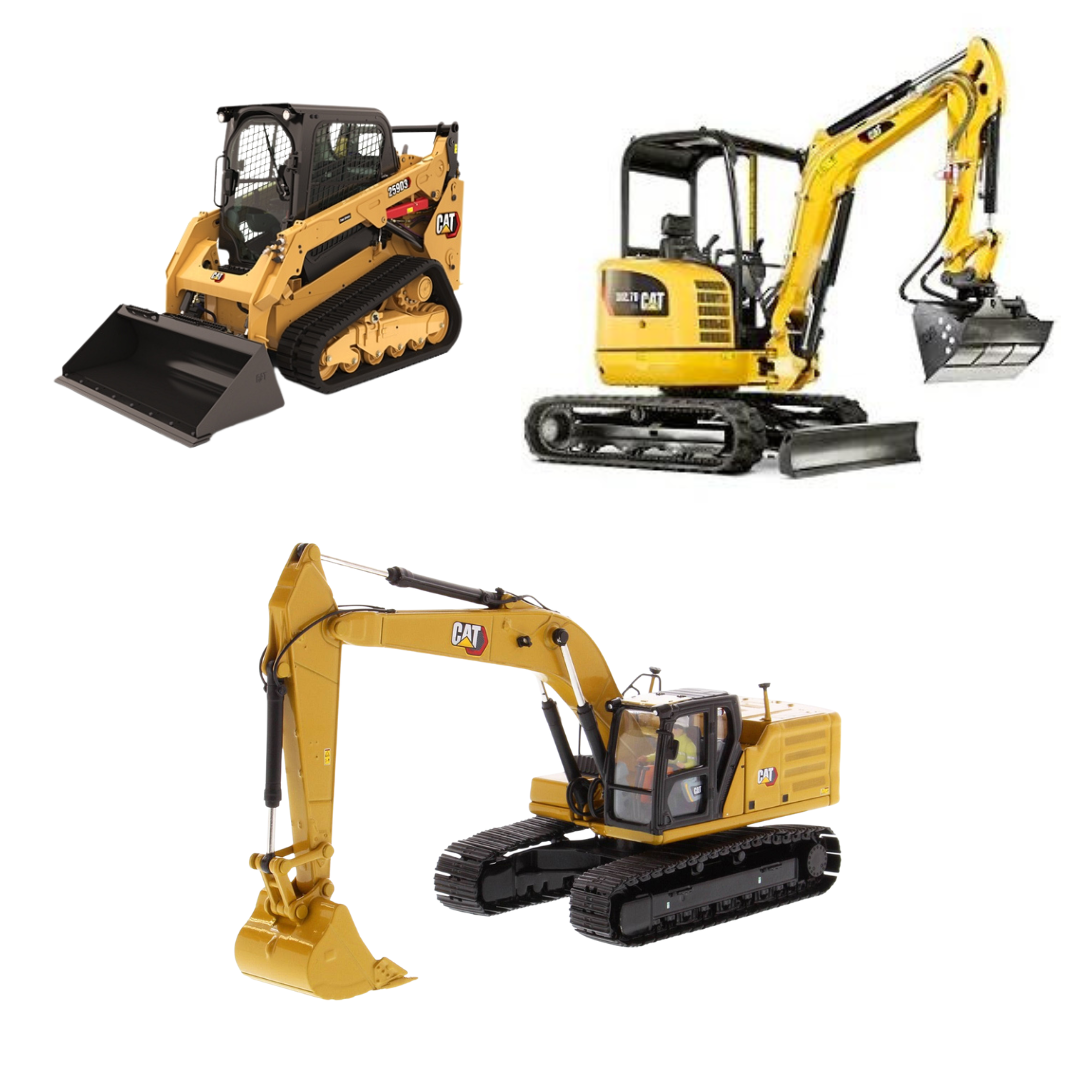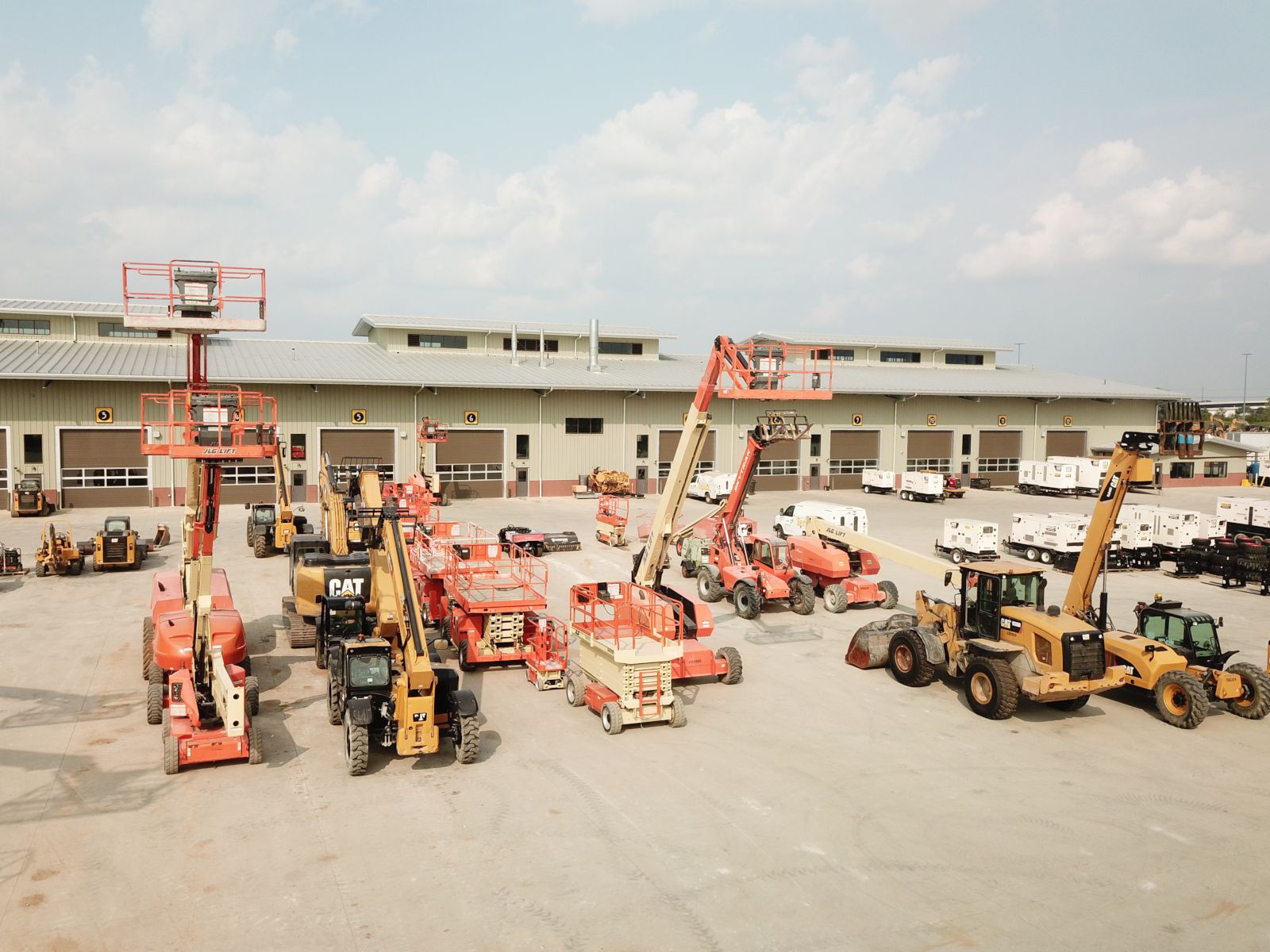Maximize Your Budget Plan by Recognizing the Expenses Connected With Construction Equipment Services
Comprehending the complete extent of expenses connected with building and construction tools leasings is vital for optimizing your spending plan. What methods can be utilized to successfully take care of these costs and make sure a much more reliable rental experience?
Introduction of Rental Prices
When considering building and construction equipment leasings, recognizing the linked costs is paramount for effective budgeting and task preparation. Rental costs can differ substantially based upon a number of variables, consisting of devices kind, period of rental, and location. The first rental fee frequently shows the devices's market demand and its connected functional abilities, influencing the total expenditure.
Along with the base rental rate, secondary costs might arise, such as transport charges, gas additional charges, and maintenance charges. It is vital to account for these additional expenses to properly examine the overall expense of leasing equipment. Furthermore, the rental duration can impact rates; longer services might get approved for affordable rates, while temporary leasings may sustain higher everyday charges.

Break Down of Rental Prices
A detailed understanding of rental rates is vital for contractors and project supervisors intending to enhance their budget plans. Rental prices for building and construction devices usually consist of numerous elements, including base rates, time-based fees, and use charges.
Base rates are the core charges associated with the rental of the tools, commonly established by the kind and size of the equipment. These prices can vary considerably, affected by factors such as devices need, availability, and local market patterns. Time-based costs, which might be daily, weekly, or monthly, serve to suit various job timelines and rental durations.
In addition, rental rates may consist of use charges, which apply when tools is used past a specified limit, guaranteeing that the rental company can represent damage. Seasonal demand variations can also influence rental rates, with peak building and construction seasons typically regulating greater costs.
Moreover, understanding the rental company's policies regarding maintenance and insurance coverage can offer further understanding right into the total price framework. By examining these components, service providers can make informed decisions, guaranteeing the option of rental equipment aligns with both job needs and budget restraints.
Extra Charges to Think About
Understanding the intricacies of added charges is critical for specialists to handle their total leasing expenses effectively. Beyond the common rental prices, different additional charges can considerably affect the overall cost of devices service. These charges often include shipment and pick-up fees, which can vary based on distance and logistics Related Site associated with moving the equipment to and from the work site.
Additionally, some rental companies may impose gas surcharges if the tools is returned with much less fuel than when leased. It is likewise necessary to recognize potential cleaning fees, specifically for customized devices that requires detailed upkeep after use.

Thoroughly assessing the rental agreement and clarifying these extra charges in advance can aid specialists guarantee and stay clear of unexpected costs that spending plans continue to be intact throughout the project lifecycle.
Upkeep and Repair Work Expenses
Routine repair and maintenance costs are commonly ignored elements that can considerably affect the total price of building and construction devices leasings. When renting equipment, it is essential to consider not see this site only the rental costs however also the potential costs linked with maintaining the machinery in ideal operating condition.
Several rental business consist of standard upkeep as part of the rental contract; however, more unexpected break downs or extensive fixings can lead to extra expenditures. It's vital to examine the rental agreement carefully to recognize what upkeep solutions are covered and what duties drop on the tenant.
In addition, devices that is not well-maintained can result in inadequacies on duty site, possibly raising and causing hold-ups project expenses. To alleviate these dangers, it is suggested to perform regular evaluations and maintain open interaction with the rental company relating to any type of problems that arise throughout usage.
Insurance Coverage and Obligation Expenses
Insurance and obligation expenses are important parts that can significantly affect the total expenditure of building and construction tools leasings (mini excavator rental). These costs make sure that both the rental firm and the customer are safeguarded from potential economic losses occurring from accidents, damage, or theft throughout the rental period

Additionally, customers should be mindful of any kind of deductibles or exclusions in the insurance coverage, as these can affect potential out-of-pocket expenditures. Recognizing the conditions of any type of insurance protection is important to avoid unforeseen expenses. Inevitably, budgeting for insurance policy and obligation expenses can assist make sure a smoother rental experience and secure against economic threats connected with construction projects.
Conclusion
To conclude, a comprehensive understanding of the costs linked with building and construction tools services is essential for effective budget plan administration. By analyzing rental prices, additional charges, maintenance expenses, and insurance coverage individuals, requirements and companies can decrease unanticipated expenses. This critical approach not just boosts cost-effectiveness but additionally guarantees that projects advance smoothly and successfully. Inevitably, informed decision-making pertaining to tools rentals adds to the overall success of building undertakings.
Rental prices can differ dramatically based on numerous elements, including devices kind, period of rental, and location (equipment rental company). The rental period can affect prices; longer services may qualify for reduced rates, while temporary leasings may incur higher day-to-day charges
By conducting comprehensive study and involving with reputable rental firms, contractors can properly navigate the complexities of rental rates, inevitably optimizing their financial sources.
Beyond the standard rental prices, numerous extra fees can substantially affect the overall price of equipment service. Rental firms frequently give obligation insurance policy that covers injuries to 3rd celebrations or damages to residential property, while equipment damage insurance can cover the price of repairs or substitute if the rented out devices is harmed.